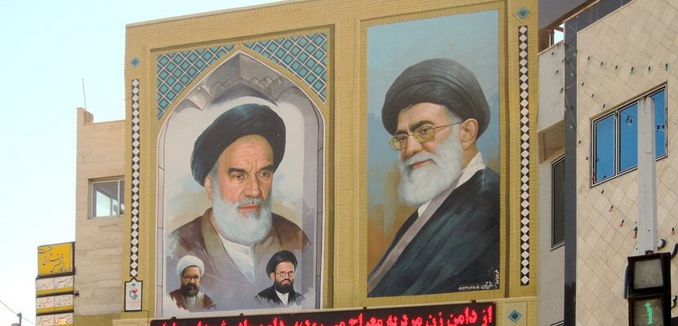Iran’s recent crackdowns on businessmen with ties to the United States, arrests of journalists, and continued rhetorical attacks on the United States have validated concerns raised by critics of the nuclear deal that it would increase the power of the regime’s hardliners.
An article in the New York Times on Wednesday highlighting Iran’s hostile behavior towards the West began, “Anyone who hoped that Iran’s nuclear agreement with the United States and other powers portended a new era of openness with the West has been jolted with a series of increasingly rude awakenings over the past few weeks.”
But to some skeptics of the deal, the rejection of America’s overtures was not at all surprising.
The article specifically mentioned Iran’s arrests of an American citizen and a U.S. permanent resident by the intelligence unit of Iran’s Islamic Revolutionary Guard Corps (IRGC). The growing strength of the IRGC was predicted by a study released in May by Emanuele Ottolenghi and Saeed Ghasseminejad of the Foundation for Defense of Democracies. They argued that the groups most likely to be strengthened by the nuclear deal were businesses controlled by Iranian Supreme Leader Ayatollah Ali Khamenei and the IRGC.
And shortly after the deal was made in July, Lee Smith, a senior fellow at the Hudson Institute, also predicted that the deal would strengthen the IRGC, concluding that”the deal is a huge victory for the regime’s hardliners.”
From a different perspective, the editors of The Washington Post raised concerns before the deal was signed that the treatment of their reporter Jason Rezaian, who was convicted of espionage by an Iranian court, suggested that those choosing to do business in Iran would be at risk. An editorial in May predicted with startling accuracy:
This blatantly unjust treatment is showing Iran to be a country where well-meaning foreign visitors, including potential Western investors, are vulnerable to being seized as hostages or used as pawns in power struggles they have nothing to do with. It shows that the judiciary does not observe minimal standards of fairness or even adhere to Iran’s own laws. It suggests that the government of President Hassan Rouhani cannot be counted on to deliver on its international commitments — including the prospective nuclear accord — because of its inability to control the intelligence services, Revolutionary Guard and other reactionaries.
The Post‘s editors raised similar concerns in August, even after they endorsed the nuclear deal despite significant misgivings.
These circumstances should raise several questions for those contemplating investment in Iran. Can the government of Mr. Zarif and President Hassan Rouhani be relied upon when it makes promises about terms for Western companies — or will it be sabotaged by Revolutionary Guard commanders who wish to defend their corrupt economic interests and keep the West out? If there are legal disputes, can Iranian courts be relied upon to enforce even straightforward laws? And will Western business owners visiting Tehran be safe from the fate of Mr. Rezaian — a correspondent duly credentialed by the Ministry of Culture and Islamic Guidance who was abducted by security forces and held in solitary confinement for months without charge while being subjected to harsh interrogation?
In an interview with NPR at the end of last year, President Barack Obama said that he thought that diplomacy could end Iran’s isolation and allow the Islamic Republic to become “a very successful regional power.” Apparently the IRGC has other ideas.
[Photo: David Stanley / Flickr ]




